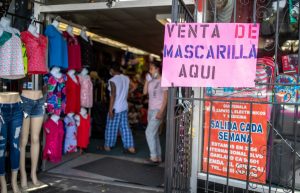By Emma Reynolds, Nada Bashir and Arnaud Siad, CNN
(CNN) — The British government has been accused of fumbling the rollout of a loosening to the country’s coronavirus lockdown, with regional leaders maintaining stricter messages and opposition politicians demanding clarity.
British Prime Minister Boris Johnson on Sunday ditched the nationwide “stay at home” slogan and replaced it with “stay alert.” He said everyone who was unable to work from home — such as construction and manufacturing workers — was now “actively encouraged” to return to work. But he also urged people to avoid public transport and stay at home if possible, leading to accusations of mixed messages.
Leaders in Scotland and Wales said they would stick to the “stay at home” message, and London’s public transit authority said it would only be able to carry 15% of passengers even after it restores 100% of services.
Dominic Raab, the first secretary of state, muddied the waters further in a round of media interviews on Monday morning when he gave conflicting statements about the size and nature of gatherings that would be permitted.
Opposition Labour Party leader Keir Starmer said Johnson’s statement was confusing. “What the nation was looking for this evening was clarity and consensus. The truth is, the Prime Minister’s statement raises more questions than it answers,” he said.
In his address to the nation from Downing Street on Sunday night, Johnson unveiled “careful steps” the government will take to ease the emergency restrictions. He said that starting Wednesday, people would be allowed to take unlimited outdoor exercise instead of just one trip per day, and would be allowed to sit in parks, drive and play sports — but only with members of their households.
Johnson said that the government would seek to re-open schools, stores and some of the hospitality industry over the weeks and months ahead.
A 50-page document with more details about the announcement was released by the government on Monday afternoon confirming the plan “to rebuild the UK for a world with COVID-19.”
This will begin with a first easing of restrictions on Wednesday.
The next step, which will come no earlier than June 1, will include reopening schools for younger students, and a third stage planned for July will involve reopening non-essential businesses and hospitality as well as large events behind closed doors.
But the government warned: “It is clear that the only feasible long-term solution lies with a vaccine or drug-based treatment.”
It said the plan was “not a quick return to ‘normality.’ Nor does it lay out an easy answer. And, inevitably, parts of this plan will adapt as we learn more about the virus.”
Even in the third stage, the document warned, some “venues which are, by design, crowded and where it may prove difficult to enact distancing” may still not be able to safely re-open.
Johnson also unveiled a new “Stay alert, control the virus, save lives” slogan, along with an alert system ranging from level 1 to 5 to help determine how quickly measures can be relaxed without triggering a second wave of infections.
Ahead of Johnson’s announcement, Scotland’s First Minister Nicola Sturgeon said her government would not be adopting the “Stay Alert” slogan. “It is of course for him to decide what’s most appropriate for England but, given the critical point we are at in tackling the virus, #StayHomeSaveLives remains my clear message to Scotland at this stage,” Sturgeon tweeted.
At a press briefing in Edinburgh on Monday, she said people should not travel from England to Scotland unless they had a valid reason. “If you are in Scotland, the law of Scotland applies,” she said.
Her Welsh counterpart, Mark Drakeford, said that Wales would not be dropping the “stay at home” message. Northern Ireland First Minister Arlene Foster said she will continue to promote the “stay at home” message, according to the PA Media. ”
Defending the reopening plan, Raab on Monday said the measures announced by Johnson the night before had been “clear.” In a radio interview with the BBC, Raab echoed the timeline given by Johnson but deviated on some of the detail.
Raab — who is effectively Johnson’s deputy as First Secretary of State — gave further updates on specific jobs, including that people who work in other people’s homes including mobile hairdressers will not be allowed to return to work.
Raab refused to answer whether employees would be able to walk out of work if they felt insecure, saying “it’s very difficult to answer that hypothetically.”
“Employers have a duty on them to provide Covid-secure settings,” he added.
Responding to a question over whether the measures create a “two-tier” system where “lower earners take the risk of catching the virus and spreading it,” Raab said that was “not right.”
The-CNN-Wire
™ & © 2020 Cable News Network, Inc., a WarnerMedia Company. All rights reserved.



















